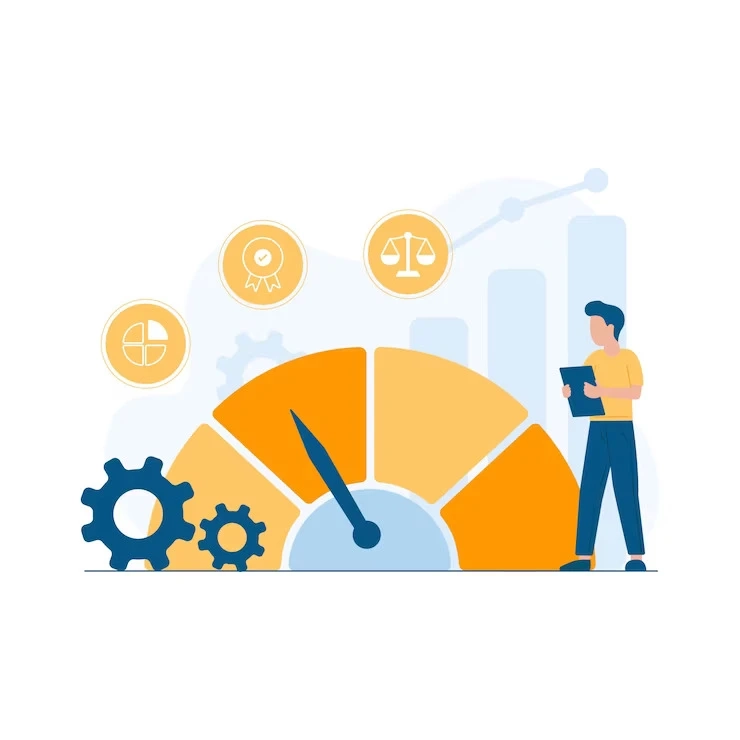We'll explore the factors that influence your score, the benefits of regular monitoring, and the process of accessing your CIBIL score through a registered account. Armed with this knowledge, you can make informed financial decisions and strive for a brighter financial future. Click on the article to read more.
Understanding and managing your CIBIL score is essential for your financial well-being. In this article, we will explore how to view your CIBIL score online and delve into the factors that influence it. From payment history and credit utilisation ratio to the length of credit history and types of credit, we will uncover the key components that contribute to your CIBIL score. Additionally, we will discuss the importance of Checking your CIBIL score regularly, identifying errors, and improving your chances of loan approvals. By demystifying the process and providing insights into your CIBIL report, we aim to empower you to make informed decisions and enhance your creditworthiness.
The Pillars That Support Your CIBIL Score
Your CIBIL score is influenced by a number of factors, each carrying different weightage in determining your creditworthiness.
Let's take a closer look at these key components:
Payment history (35%): One of the most significant factors, your payment history includes timely payments of your loans, credit card bills, and other financial obligations.Credit utilisation ratio (30%): This ratio compares your outstanding credit balance to your total available credit limit. Maintaining a low utilisation rate (ideally below 30%) can positively impact your CIBIL score.Length of credit history (15%): Having a longer credit history with consistently responsible credit behaviour can help boost your score.Types of credit (10%): A diverse mix of credit types, such as home loans, personal loans, and credit cards, can demonstrate your ability to manage different financial responsibilities.Recent credit inquiries (10%): Frequent loan or credit card applications can lead to multiple hard inquiries on your credit report, which may negatively affect your CIBIL score.That said, don't forget to check your CIBIL score online!
The Importance of Keeping an Eye on Your CIBIL Score
Regularly checking your CIBIL score online is akin to keeping tabs on your financial health.
Here are some reasons why it is essential to monitor your score:
Staying informed: Knowing how to view your CIBIL score can help you gauge your creditworthiness and plan your future financial moves accordingly.Identifying errors: Regularly reviewing your credit report allows you to spot any discrepancies or errors that may be affecting your score negatively.
Improving loan approval chances: A good CIBIL score can pave the way for better loan terms and lower interest rates, making it crucial to maintain and improve your CIBIL score.
Laying the Foundation – Registering for a CIBIL Account
Before you can view your CIBIL score online, you need to create an account on the official CIBIL website.
Follow these simple steps to get started:
Visit www.cibil.com and click on 'Get Your CIBIL Score.'Fill in your personal information, including your name, date of birth, PAN, email address, and mobile number.Create a password and accept the terms and conditions.Complete the identity verification process by answering a few questions based on your credit history.Unlocking the Door – Accessing Your CIBIL Score Online
Once you've successfully registered for a CIBIL account, accessing your CIBIL score is just a few clicks away.
Here's how to access your score online:
Log in to your CIBIL account using your registered email address and password.Navigate to the 'CIBIL Score' section on the dashboard.Your CIBIL score, along with a detailed credit report, will be displayed on the screen. Take the time to review this information carefully to understand your credit standing.Understanding Your CIBIL Report
Your CIBIL report contains a wealth of information to help you understand your credit standing.
Let's break down the key sections of the report and what they mean:
Personal information: This section includes your name, date of birth, PAN, and contact details. Make sure all the information is accurate and up to date.Account information: Here, you'll find the details of your credit accounts, such as loans and credit cards, along with their current status, outstanding balances, and payment history. Review this section carefully to ensure there are no inaccuracies or discrepancies.Enquiry information: This part of the report lists all the credit inquiries lenders make when you've applied for loans or credit cards. Frequent hard inquiries can hurt your CIBIL score, so applying for credit judiciously is essential.CIBIL score calculation: Your CIBIL score, ranging from 300 to 900, is derived based on the information in your credit report. A higher score reflects better creditworthiness, increasing your chances of securing favourable loan terms and interest rates.Wrapping Up
Understanding and monitoring your CIBIL score is essential to maintaining good financial health. By closely monitoring your score and taking the necessary steps to improve it, you can enhance your creditworthiness and increase your chances of securing better loan terms and interest rates.


